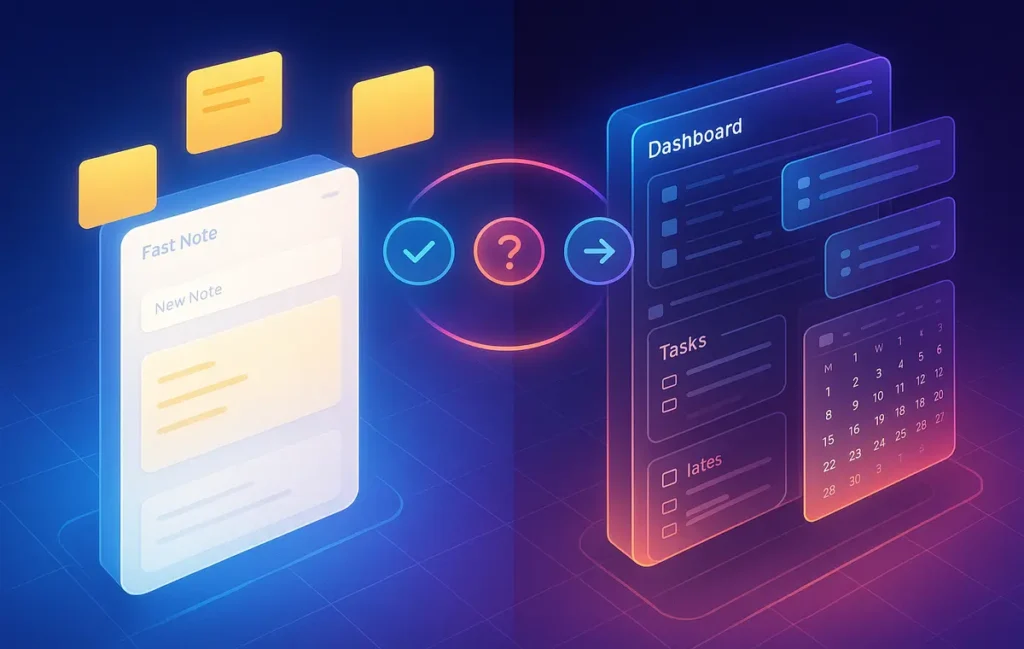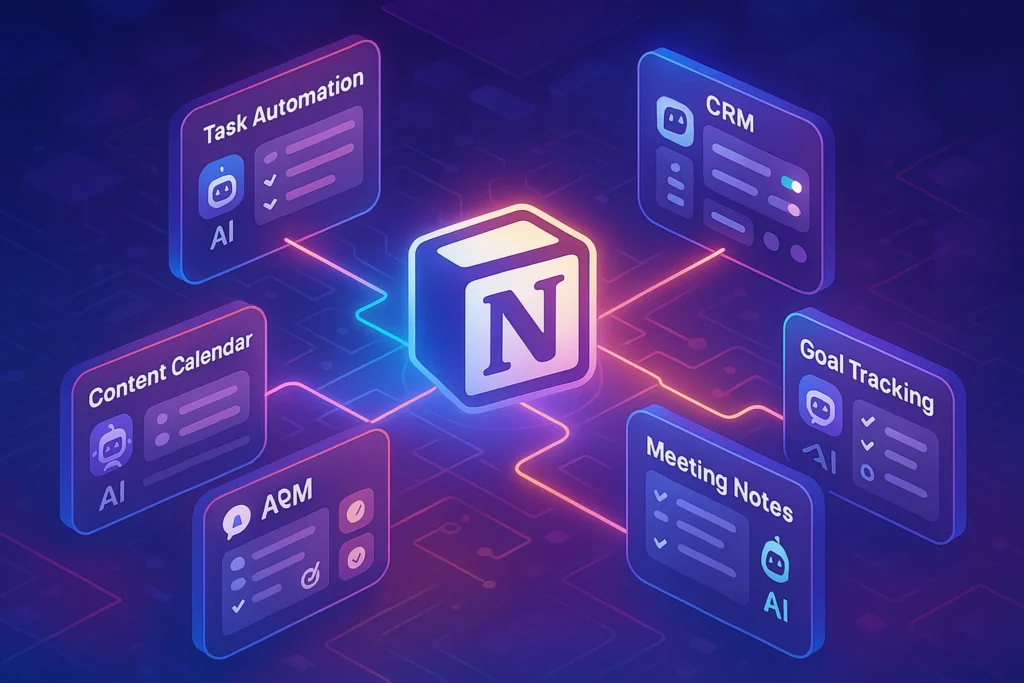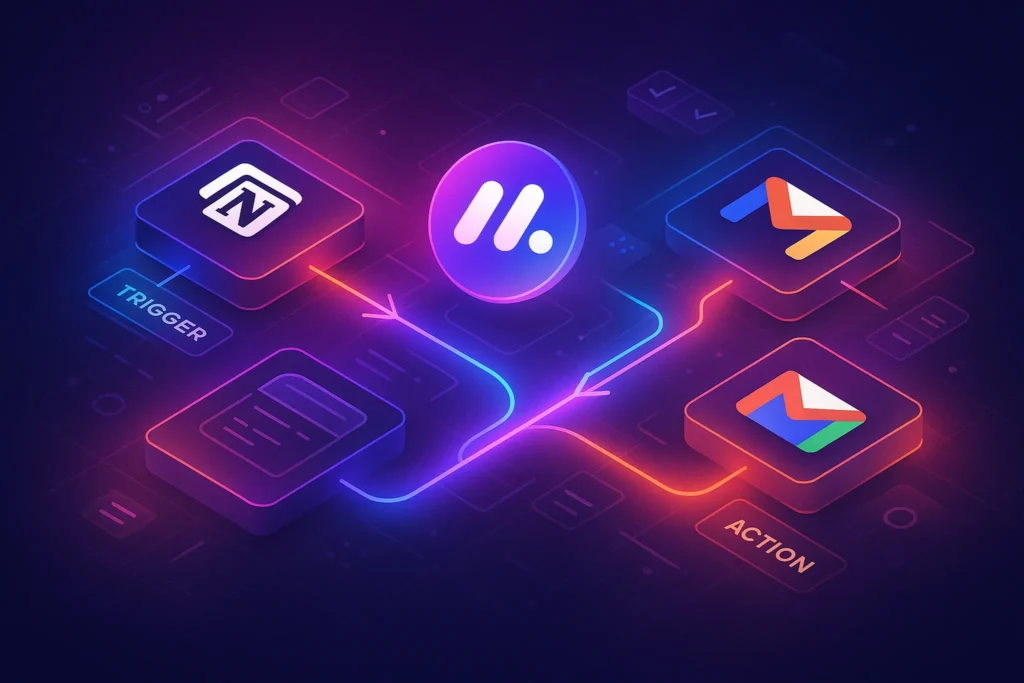🔥 Introduction: Why Users Get Stuck Between Notion and Note-Taking Apps
For years, digital productivity has been split between two camps: lightweight note-taking apps and all-in-one tools like Notion. Some people swear by the speed and simplicity of Apple Notes or OneNote, while others embrace Notion’s databases, templates, and endless customization. The problem is, many users find themselves caught in the middle.
Should you keep things simple with a traditional note-taking app, or make the leap into a powerful (but more complex) system like Notion? Switching tools is costly in time and energy, yet sticking with the wrong one can create long-term friction. This post explores the decision-making framework that helps you choose whether to stay or switch.
💡 Nerd Tip: The right app isn’t about hype—it’s about matching your workflow with the tool’s DNA.
⚡ What Makes Note-Taking Apps Great
Note-taking apps thrive because they do one job really well: capturing thoughts quickly. Speed and simplicity are their core strengths. When you open Apple Notes, OneNote, or Bear, you’re one tap away from jotting down an idea, saving a link, or pasting a snippet of code. No setup, no configuration, just raw capture.
Another advantage is their offline-first nature. Whether you’re on a flight or in a spotty Wi-Fi area, your notes are always available. Syncing often happens silently in the background. For writers, students, and field workers, this reliability is priceless.
Quick capture features also set them apart. Dictation support, stylus input, and instant search make note-taking apps efficient for everyday use. They aren’t built to manage entire projects, but they don’t need to be—they shine when it comes to storing knowledge fast and with minimal distraction.
💡 Nerd Tip: If your workflow is about collecting sparks of inspiration, a note-taking app will always feel more natural than a structured database.
🏗️ Where Notion Shines
Notion isn’t just for notes—it’s a full ecosystem. Its databases allow you to connect notes, tasks, and documents in ways that transform scattered information into structured workflows. Templates give you a head start for everything from habit tracking to 5 AI-powered Notion templates to automate your workflow.
Collaboration is another strength. While note-taking apps often stay personal, Notion thrives in teams. You can manage projects, assign tasks, and create shared dashboards, turning knowledge into collective action. Integrations with Slack, Zapier, and Google Workspace extend its functionality, making it the backbone of a startup’s knowledge stack.
Customization is the final differentiator. Notion can morph into a CRM, a content calendar, or even a full website. For solopreneurs, it can replace multiple tools. For teams, it creates alignment by centralizing goals and projects.
💡 Nerd Tip: Notion isn’t just a note app—it’s a canvas. But the canvas is only useful if you’re ready to paint.
🔄 Common Triggers for Switching
Most users don’t switch tools out of curiosity; they switch when friction builds. One common trigger is volume. As notes pile up, simple apps start to feel like chaos. Searching across hundreds of untagged notes in Apple Notes can feel like digging for a needle in a haystack.
Another trigger is collaboration. The moment you need teammates to see, comment, or update notes, traditional apps show their limits. Notion’s ability to turn notes into shared workspaces makes it the natural next step.
Finally, automation and templates play a big role. If you’re repeating workflows manually, like tracking weekly tasks or building content calendars, switching to Notion allows you to embed automation. With tools like how to build custom automation workflows in Notion, you can transform recurring chaos into structured systems.
💡 Nerd Tip: Switching tools is less about frustration and more about scaling. If your needs are growing, your app must grow too.
🧘 When You Should Stick With Note-Taking Apps
Not every workflow requires Notion. If your style is minimalist—quickly capturing and retrieving ideas without overhead—a note-taking app is enough. Writers who prefer uninterrupted focus often find databases distracting.
Offline focus is another reason to stay. Notion is powerful but requires internet connectivity for full functionality. In contrast, OneNote or Obsidian thrive in offline-first environments.
Low-distraction environments also matter. Some people simply don’t want the temptation of creating dashboards or tweaking layouts. For them, Apple Notes or Bear serve as a mental safe haven.
💡 Nerd Tip: If you don’t need structure, don’t force it. The best system is the one you actually use.
📊 Popular Alternatives to Compare
When comparing note-taking apps against Notion, several strong contenders emerge:
-
Evernote: Once the king of note-taking, it now competes directly with Notion. For a deeper dive, see Notion vs. Evernote.
-
OneNote: Microsoft’s robust, free tool with excellent stylus support for students and professionals.
-
Obsidian: A favorite among knowledge workers who love backlinks and networked thought.
-
Apple Notes: Native, fast, and integrated deeply into iOS/macOS ecosystems.
-
Bear: A minimalist choice for writers, with clean design and Markdown support.
Each of these tools excels in its niche. Compared with Notion, they are simpler but more constrained. The decision depends on whether you value speed over structure, or flexibility over focus.
💡 Nerd Tip: Every app has trade-offs. Comparing them isn’t about features—it’s about fit.
🧩 Decision Framework: Stay or Switch?
So how do you actually decide? For individuals, the criteria are personal. If your main tasks are journaling, research, or simple task lists, stick with a note-taking app. If you’re building workflows, automating processes, or connecting projects, Notion becomes the logical upgrade.
For teams and startups, the equation is clearer. Note-taking apps work for personal productivity but collapse under collaboration. Notion’s ability to centralize goals, workflows, and assets makes it a superior choice for scaling teams. Many early-stage startups eventually outgrow simple tools and adopt Notion as their operating system.
💡 Nerd Tip: Don’t switch for aesthetics. Switch when your current system can no longer scale with your needs.
📖 Case Study: From Evernote to Notion (and Back Again)
Take the example of a content creator who spent six years inside Evernote. Their library grew to 8,000 notes. Search slowed down, tags became inconsistent, and organization collapsed. They switched to Notion, excited by templates and automation. At first, it was a revelation—databases helped them build a structured archive, and they even monetized workflows by learning how to sell Notion templates.
But over time, they realized Notion slowed down their quick capture process. Drafting ideas on mobile took too many taps. Eventually, they split their workflow: Evernote (or even Apple Notes) for raw capture, and Notion for structured projects.
The lesson: switching isn’t always permanent. Sometimes the best system is hybrid.
📊 Measuring ROI of Switching
Time is the hidden cost of switching apps. Learning Notion requires setup and practice, but the ROI comes in automation and clarity. A small team that spends two hours each week reorganizing tasks can save over 100 hours annually by centralizing workflows in Notion. For freelancers, using automation to replace manual reporting can cut repetitive work by 15% or more.
💡 Nerd Tip: Before switching, estimate the hours wasted in your current system. If Notion saves more than it costs in time, it’s worth the leap.
⚡ Try a Smarter Note System
Curious about switching? Test Notion with free templates or explore automation workflows to see if it fits your style better than your current app.
🎓 Learning Curve & Onboarding
Switching from a simple note-taking app to Notion often feels like moving from a bicycle to a spaceship. The sheer flexibility of databases, templates, and views can overwhelm new users. Many enthusiastic adopters burn out in the first few weeks, leaving behind half-built dashboards.
That’s why onboarding is crucial. The best way to start is small—use Notion as if it were a basic note-taking app. Create a single page for daily notes, then gradually introduce templates for tasks or projects. Leveraging ready-made templates, including 5 AI-Powered Notion Templates to Automate Your Workflow, dramatically reduces setup friction.
Startups and teams can make onboarding smoother by assigning a “Notion champion”—a person who builds starter dashboards, trains teammates, and keeps the system from turning into chaos.
💡 Nerd Tip: Don’t migrate everything on day one. Start with one workflow that matters most, then expand as the team gains confidence.
📚 Long-Term Knowledge Management
Note-taking apps excel at quick capture, but they aren’t designed for long-term knowledge systems. Notion, on the other hand, can serve as a “second brain.” Databases with backlinks, tags, and cross-linking let you build knowledge that compounds over years.
For individuals, this means turning scattered notes into connected insights. Writers, researchers, and students often discover that Notion transforms their raw ideas into structured archives they can reuse. For teams, it creates institutional memory—every project, decision, and document lives in one searchable system.
By contrast, Apple Notes or Bear are excellent for momentary thoughts but struggle to manage thousands of interconnected notes over the long term. Obsidian offers a middle ground with its graph-based knowledge approach, but it lacks the collaborative layer Notion provides.
💡 Nerd Tip: If your notes feel disposable, stick with lightweight apps. If they’re assets you’ll need in a year, consider Notion.
💰 Cost & Value Considerations
Cost is often overlooked in productivity debates. Apple Notes, OneNote, and even Obsidian (for personal use) are free or close to it. Notion’s personal plan is free as well, but its true power emerges in team and business plans, which carry a monthly cost per user.
For individuals, paying may not feel justified. But for teams, the ROI is often clear. If Notion eliminates the need for multiple tools—task managers, wikis, or even lightweight CRMs—the subscription becomes a bargain. Compare this with the “free but fragmented” ecosystem of multiple apps that don’t talk to each other.
💡 Nerd Tip: Free apps cost time in the long run if you need multiple tools. Paid apps like Notion often pay for themselves by consolidating workflows.
🔄 Hybrid Workflows (Best of Both Worlds)
One of the most overlooked strategies is using both types of apps together. Quick capture often feels smoother in traditional note-taking apps. You can jot ideas in Apple Notes, Bear, or OneNote while on the go, then transfer important notes into Notion for organization and long-term use.
Many professionals use this hybrid model successfully. For example, a startup founder might log investor call notes in Apple Notes during a meeting, then later migrate them into a Notion database connected to fundraising tasks. This avoids the friction of forcing Notion into every micro-task while still leveraging its power for big-picture workflows.
💡 Nerd Tip: Productivity isn’t about picking one tool forever. Hybrid systems often unlock the best balance of speed and structure.
🌐 Community & Ecosystem
Notion’s strength goes beyond its software—it’s about the ecosystem. Thousands of templates are available, many of them designed by other users who sell or share their systems. Entire marketplaces exist where you can learn how to sell Notion templates and even monetize your expertise.
Communities on Reddit, X, and Discord share workflows daily, helping beginners learn quickly. In contrast, most note-taking apps don’t have this vibrant ecosystem. Apple Notes or OneNote are powerful but don’t inspire the same level of community-driven innovation.
This community-driven culture turns Notion into more than an app. It becomes a learning network, where ideas evolve collectively. For startups and creators, tapping into this ecosystem can save months of trial and error.
💡 Nerd Tip: When you buy into Notion, you’re not just buying software—you’re joining a community that teaches you how to use it better.
🔮 Future Outlook: AI-Powered Productivity
The future of this debate will be shaped by AI. Traditional note-taking apps are starting to integrate AI for summarization, quick search, and voice-to-text. Imagine Apple Notes auto-tagging and categorizing every note, or OneNote suggesting study summaries.
But Notion already has a head start. Its built-in AI can draft meeting notes, suggest tasks, or even generate databases on the fly. Combined with its automation potential (see how to build custom automation workflows in Notion), Notion positions itself as not just a note-taking tool, but an AI-driven productivity hub.
The question is whether lightweight apps will catch up—or whether Notion will continue to expand its lead by blending human creativity with machine assistance.
💡 Nerd Tip: Keep an eye on AI developments. They may redefine the balance between simplicity and power in the next generation of productivity tools.
📬 Want More Smart Productivity Tips Like This?
Join our free newsletter and get weekly insights on Notion workflows, automation tricks, and productivity strategies—straight to your inbox.
🔐 100% privacy. No noise. Just actionable productivity tips from NerdChips.
🧠 Nerd Verdict
The debate between Notion and note-taking apps isn’t about right or wrong—it’s about context. If speed and simplicity matter most, stick with a dedicated note-taking tool. If structure, collaboration, and automation matter, Notion is the better bet.
At NerdChips, our stance is balanced: don’t let the productivity hype force you into a tool that doesn’t fit. Your workflow should dictate the platform—not the other way around.
❓ Nerds Ask, We Answer
💬 Would You Bite?
If your note-taking app feels limiting, would you invest time learning Notion’s system—or stick with speed and simplicity?
Crafted by NerdChips for creators and teams who want to capture ideas and turn them into systems that last.



